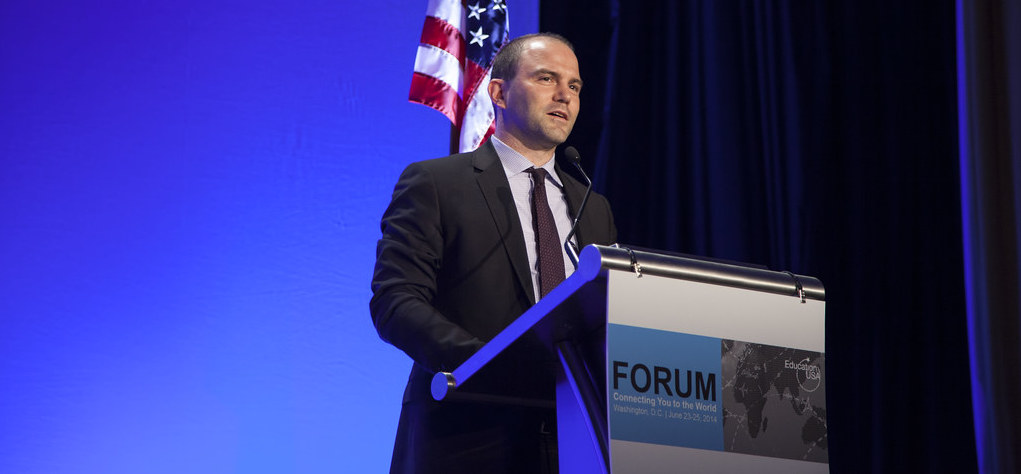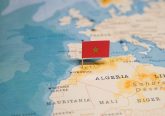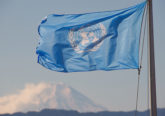Barack Obama’s 2008 campaign undoubtedly inspired a movement of young progressives across America, and few believed in the sprawling idealism more than Ben Rhodes, a young New Yorker who ultimately rose to become Obama’s Deputy National Security Advisor. It is this proximity to power, especially during a historic presidency, that makes Rhodes’ second book, After the Fall: Being American in the World We’ve Made, worth considering.
After the Fall centers on an author grappling with a reality—in America and across the world—that has shaken his faith in the “happy democratic endings” he and Obama once held as an ultimate goal. Based on a four-year, cross-continent journey, he explores politics from Russia and Hungary to China and Hong Kong to trace the route from the end of the Cold War—a moment of American hegemony and democratic ascendancy—to the current age of Putin, Orban, and the Chinese Communist Party, all of which he views as direct and credible challenges to an American-led world order. And citing a series of examples, like an American citizen being detained and tortured in an Egyptian prison, a young Hungarian journalist observing “there is no reality, there’s no facts”, and Putin poisoning Alexei Navalny “because he could”, Rhodes struggles to reconcile his own role in creating, or at least failing to prevent, the world he finds.
It is, of course, Rhodes’ intention to offer a diagnosis of the root cause of this shift and, in turn, a set of solutions for those who, like him, believe deeply in the protection and promotion of democracy and in America’s global role. And there is much that is interesting as Rhodes sets about the first task. He identifies America’s export of unbridled capitalism and its role as a key driver of stark inequality, which, by the time of the 2008 financial crisis, significantly undermined the credibility of America’s economic offer. He is critical of America’s role in driving the technological advancements that have allowed social media companies in particular to create an exploitable data superstructure, with little thought given to appropriate regulation. For someone who made his name in Washington in the aftermath of America’s invasion of Iraq, he is predictably critical of a hyper-securitised approach to foreign policy that further heightened suspicion of the American-made order.
Rhodes argues that with these forces combining, there has been ample space for populism and autocracy to grow. That is, leaders like Putin, Orban, and Xi have been afforded room to offer a compelling critique, typically via a nationalist populism built on identity politics. Eastern autocrats, often ballasted by the more corrosive forces of America’s technology revolution, have successfully capitalised on the economic disappointments of globalisation and the perceived threat of an expanding American foreign policy to provide the comfort of a nationally-defined ‘Us’ and the clarity of a misguided hegemon to ably play the role of ‘Them’. With China in particular, Rhodes argues that this critique provides a foundation for a credible economic and political alternative to offer those in its increasingly widening sphere of influence.
There are, however, several problems with both the account offered and Rhodes’ response. First, the argument takes the merits of an American-led, democratic order as given. Following his extensive exposition of America’s post-Cold War failings, it appears contradictory and ideologically-driven for Rhodes to take a desire for American primacy as an article of faith. Relatedly, while heavily (and correctly) criticising China’s indisputable human rights transgressions, particularly in their treatment of the Uighur Muslims in Xinjiang, Rhodes too readily discounts an economic and political approach that he himself acknowledges successfully dragged millions out of poverty during the 20th century. More could be done here to understand why this has represented an attractive proposition for countries across Asia and, to an extent, Eastern Europe and Africa. And in his deeply partisan excoriation of the Trump presidency, which he blames for failing to engage internationally and effectively challenge the increasing ascendancy of leaders like Putin, he is surely contributing to the division and rancour that presents one of the most significant obstacles to the united, globally credible and influential America he demands.
It is perhaps for these reasons that the conclusions Rhodes offers feel hopeful, rather than convincing. He calls for the 2020 election to be a turning point from which America looks outwards, prioritising investment and diplomacy while offering a hopeful alternative to the populism and autocracy surging across the East. Without a detailed plan of exactly how this investment and diplomacy would be focused and delivered though, it is hard to see this as a genuinely credible challenge to the power of existing projects like China’s Belt and Road initiative, of which he writes about extensively. And while it is clear Rhodes wants to believe in Biden’s America and its ability to be influential internationally, in ending with Obama’s 2020 Democratic convention speech and the plea to not “let them take your democracy”, there is a stark nervousness. He acknowledges, for example, that he concludes the book with progressives around the world under siege and autocracy, identity politics, and divisive technological forces as potent as ever. As the UK continues to see anti-vaccination protestors and the US continues to debate the actualities of the attack on the Capitol in January, Rhodes’ conviction that Covid represents a moment of resurgence for fact, science, and reality— all forces he believes can fatally wound movements built on exploitative, nationalist identify politics—seems overly optimistic too.






